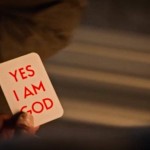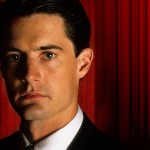
Slip down darkness to the mouth
Damn the water, burn the wine
I’m going home for the very last time.
-Soundgarden, “Let Me Drown”
Chris Cornell, lead singer and songwriter for Soundgarden and Audioslave, is dead by his own hand at the age of 52. By now you’ve likely had a chance to read about his struggles with depression, and have had your own reaction to this (it’s hard not to have a visceral reaction to suicide, even when it’s a stranger, isn’t it?).
I’d like to offer a different perspective on his death. I think it might be fair to say that although Chris Cornell killed himself because of depression, in some ways it might be more accurate to say that Chris Cornell was killed in the line of duty in his job as a shaman.
Traditionally, a shaman is someone who enters a mindset different from the usual run of the mill consciousness we all partake of in our daily lives, encounters good and evil spirits, and returns to us with useful wisdom about life as a result of that journey. This sort of thing is painfully old-fashioned by modern Western standards. Who really believes that your lousy career is because of a demon that came from the ground under your childhood home? And who wants to believe that their success is because of a sparkly water nymph, and not our own hard work and determination?
Nonetheless, the angels and demons that we once accepted as very real are still there, lurking in our hearts and minds. Art, done properly, addresses this — and few artists were as adept at making that journey and returning with hard-won gems than Chris Cornell. By capturing pain and rage and sadness in a noose of words and music, those monsters can be harnessed for good, rather than letting them create the destruction they normally cause in their natural condition.
That’s what Chris Cornell did. He wrestled with the darkness and made music from it. Along the way, he was the main force behind the Soundgarden album Superunknown — an album which did more than anything else to get me through one of the bleakest times of my life. If you’ve ever found a song or an album or a film or a book that got you through a dark stretch of your own, then you owe a debt of thanks to a shaman like Chris Cornell.
I know better than to compare myself to Chris Cornell, but in my own small way, as a counseling astrologer, this is what I do too. I don’t make art that moves millions of people and speaks to their pain — I go into the dark one person at a time and try to bring back some Light. I have known the kind of gnawing pain that kind of work can uncover, and if you are in any line of work that qualifies as a “helping profession,” you probably know the feeling of having someone’s ghosts follow you home at the end of the day to spend the night partying loudly with your own personal demons.
When Kurt Cobain killed himself, it wasn’t that big a shock. Kurt Cobain might as well had a big blinking sign over his head that said THIS GUY IS GONNA KILL HIMSELF SOME DAY. Either because we didn’t know about it or because he was more clever at disguising it, Chris Cornell bore the stripes of descending into the darkness too many times, and finally took the only route out that he could see any more. Maybe, like so many of us do at times, he overestimated his ability to cope.
Finally, I believe this needs to be said: if you find your portion of emotional pain is close to exceeding your capacity to deal with it, please seek help. I may not know who you are or what you’re facing, but you checking out early just passes the bill on to those around you. Don’t do that to the people who care about you. Hell, don’t even do it to a complete stranger like me, whose world may be diminished because of your departure. I won’t do that to you, so don’t do that to me. Deal?
















